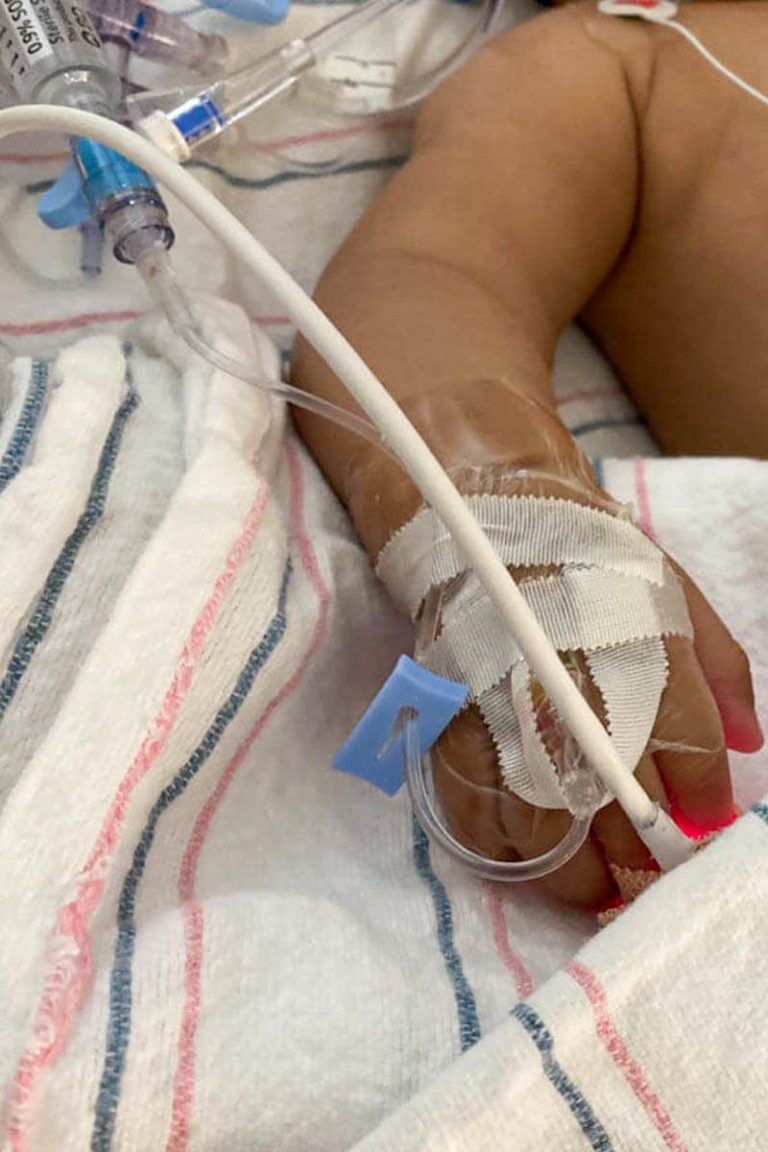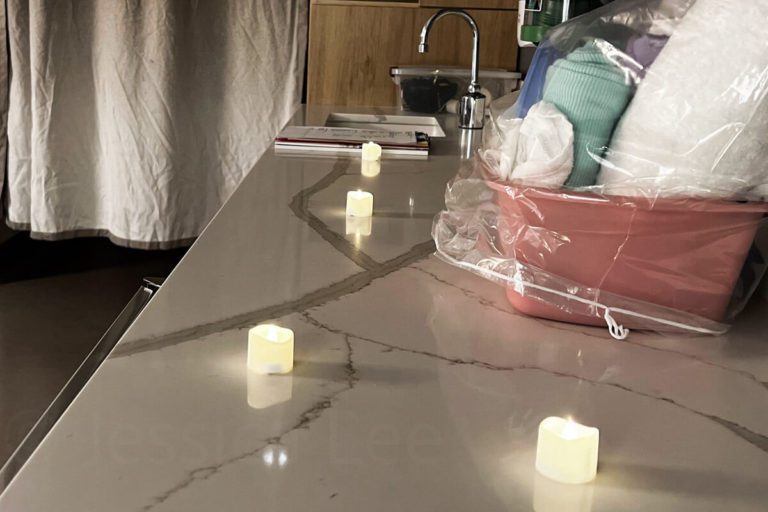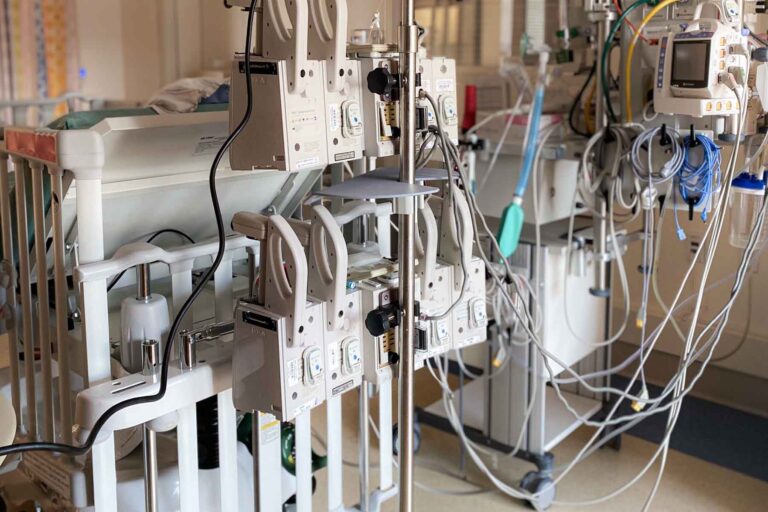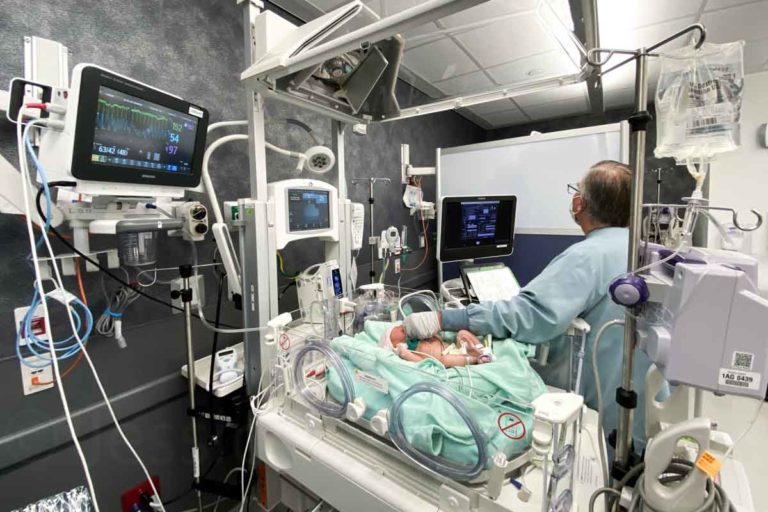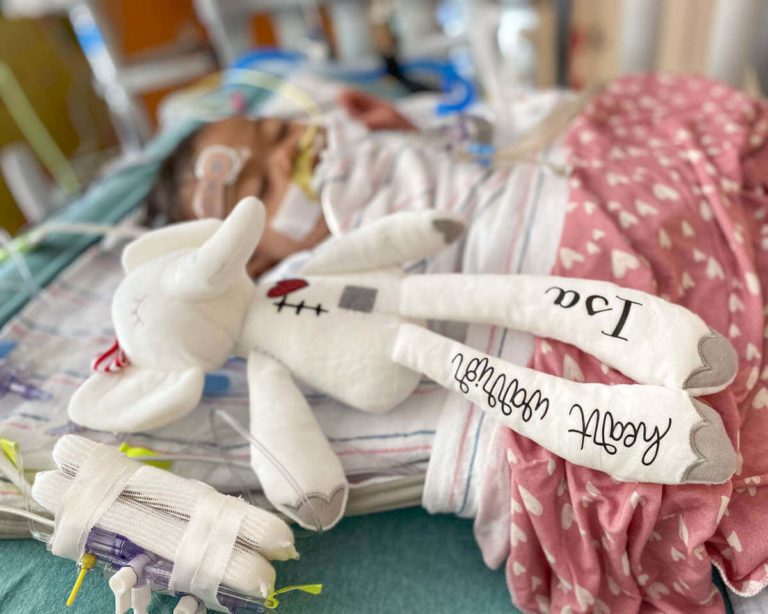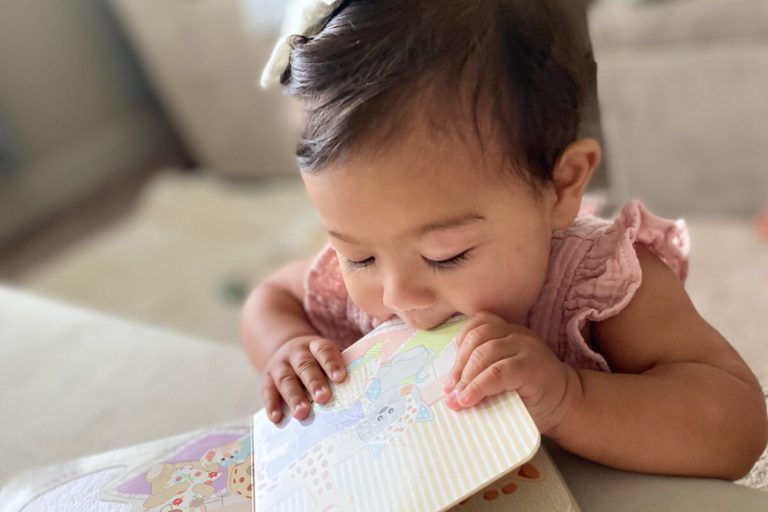Meet Your Baby’s CHD Medical Team, Part 1: Home Edition
Taking care of a baby with critical CHD is a team effort. A team effort at home. And a collaborative team effort of providers in the medical space.
In this post, come along with me to meet some of your CHD child’s medical team. I’ll take you through a list of physicians, providers, and other medical professionals you may encounter as part of your baby’s medical team.
This will come in two parts, and the first will go over care providers you might see while at home (not inpatient), either in medical offices, a hospital clinic, or sometimes certain care can even be provided in your home directly.
The second part will cover medical providers and professionals while inpatient or in a hospital setting.
Jump to: Preventive Care, Heart Care, Growth Care, Developmental Care
No time to read right now? Pin it or email it to yourself for later!

Our CHD care team
My daughter was prenatally diagnosed with a complete AV canal defect. At first, we only had a pediatrician and a pediatric cardiologist lined up for our daughter.
After birth, her diagnosis changed to include several other heart defects. Overall her case became more complex rather than straightforward.
She was born in critical condition and needed open heart surgery stat, which was not the plan or expectation. It felt like overnight, she had a team of 10+ doctors.
It made sense that her care needs required several doctors, though it was overwhelming to process and figure out what was what, who was who, and why so and so was involved.
Over her first year with Congenital Heart Disease, my daughter was under the care of pediatric cardiologists, pediatricians, dentists, gastroenterologists, ENTs, pulmonologists, neonatologists, nutritionists, feeding therapists, physical therapists, occupational therapists, craniofacial orthodontics, plastic surgeons, cardiothoracic surgeons, and several additional medical professionals in supporting roles.
For certain specialists, it was a brief assessment, while others provided more ongoing care.
CHD Medical Team Care Members for a Heart Baby
A baby with Congenital Heart Defects, especially critical CHDs, requires a higher level of care than a typical healthy baby.
Having a heart with atypical anatomy or functioning can lead to additional heart problems, as well as, other issues in the body. A team of doctors is necessary to help manage and support CHD patients.
Let’s get into regular preventive care doctors, heart-related physicians and technicians, growth support, and developmental care team members.
Standard Preventive Care
Typical preventive care is important and still necessary for babies with CHD, even when they have a whole team of specialists.
Depending on your heart warrior’s specific congenital heart defects, repair status, and health factors some of their preventive care appointments, requirements, and schedules may be different than a baby without CHD.
This should be a collaborative discussion and plan between your child’s cardiologist, pediatrician, and you.
Pediatrician
- What: A pediatrician helps monitor your baby’s overall health, growth, and development and can help coordinate care between other providers and specialty doctors.
- Why: Your heart warrior will need to see a pediatrician same as any other baby. They will have their cardiologist and other doctors, but these physicians are focusing on their specialties and not always on overall health.
- How: They will see their pediatrician for regular check-ups and vaccinations.
We kept the same pediatrician for my daughter as her older brothers.
Pediatric Dentist
- What: A pediatric dentist is a dentist for children in charge of overseeing and managing their oral health.
- Why: Maintaining good oral hygiene is extra important for those with CHD. Since there are blood vessels in the teeth, bacteria can travel from the mouth to the heart. Preventive dental care and good oral hygiene can help minimize the risk of endocarditis.
- How: The American Academy of Pediatric Dentistry recommends caregivers bring their baby in for their first dental visit when they get their first tooth, or by the time they turn 1 year old. So it’s a good idea to bring your CHD baby to a dentist earlier rather than later to get them comfortable with the routine, and have them under proper care early.
Likewise, for her dentist, my daughter has the same dentist as her siblings.
Special Heart Care
A baby with CHD requires close monitoring and management of their heart health. To keep their heart functioning at its optimal ability and minimize damage to their heart, various providers focus on tracking and helping support a CHD warrior’s heart health.
This is especially true of babies with critical congenital heart defects, as these require a major heart procedure or surgery within their first year to survive.
For some CHD warriors, if their heart stabilizes enough, then their monitoring and care needs may lessen. For example, while awaiting surgery, the baby may need to go to their cardiologist once a month, but after their repair and recovery, if stable enough, then they may only need to go once a year.
Pediatric Cardiologist
- What: A pediatric cardiologist is the heart of a CHD baby’s medical care team. They will lead in diagnosing, monitoring, and managing your child’s heart and blood vessel problems. Additionally, they will assist in coordinating heart procedures and surgeries.
- Why: Children with CHD need to be seen by cardiology to keep track of how their heart is functioning. Specifically, they need to be under the care of pediatric cardiologists, as their education and training are specific to pediatrics and not the same as adult heart care.
- How: Your child with CHD will attend regular pediatric cardiologist appointments for life for heart check-ups. The frequency of these appointments will vary based on the status of their heart health.
The first pediatric cardiologist we were introduced to and gave us an initial diagnosis didn’t work out, so we found another cardiologist who was a better fit for our family. Since they play an integral role in your child’s healthcare, liking and trusting your CHD child’s cardiologist is important.
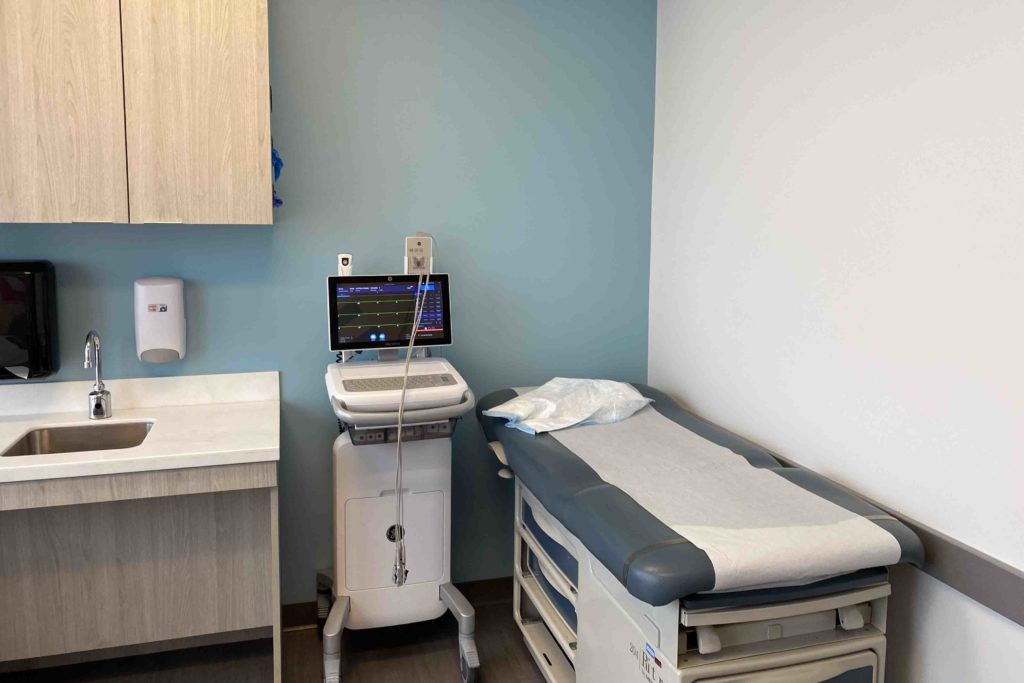
Echocardiogram Technicians
- What: An echocardiogram technician, sometimes called a diagnostic medical sonographer, is a trained medical provider who performs echocardiograms.
- Why: Echocardiograms are a type of ultrasound of the heart used to monitor heart health, structure, and function. For those with CHD, echocardiograms are a regular part of their care to check on the heart.
- How: If the cardiologist or cardiac surgeon requires echo images of the heart, an echocardiogram will be performed by a tech to provide these images. It is often a part of cardiologist appointments for CHD, and also used in the hospital pre-op and post-op for heart procedures and surgeries.
Cardiac Nurses
- What: A cardiac nurse is a medical provider who performs countless functions for their patients and doctors with a special focus and skillset in cardiac settings.
- Why: Nurses are the unsung heroes of our healthcare system, it would collapse without them. Cardiac nurses are an extra special group of nurses who help our CHD warriors, especially post-operatively. Cardiac nurses are often working in pediatric cardiac intensive care units to provide help with CHD patients. They have education and training to help patients with heart defects, heart disease, and heart surgery.
- How: Cardiac nurses complete an exhaustive list of tasks for their patients. They may be involved in diagnostic testing, cardiac monitoring, pre-op evaluations, providing medications, educating patients and parents, post-op care, defibrillation, and so many more things.
Through this CHD journey, you will encounter countless incredible nurses. They help support many functions in doctor’s offices, in the hospital, and even sometimes care at home. The cardiac nurses in ICU helped put me back together so I could take on this heart mom life. They picked me up, taught me, and gave me support. I wouldn’t have managed this CHD journey without them.
Pulmonologists
- What: A pulmonologist specializes in their patients’ lungs and airways.
- Why: The heart and lungs are intricately linked. When the heart is strained, the lungs can be impacted too. Children with CHD may have or develop problems with their breathing or lungs (e.g., pulmonary hypertension). CHD babies sometimes require oxygen support as well.
- How: If your child has respiratory issues, then their pediatrician or cardiologist may recommend involving a pulmonologist. This doctor will be able to monitor their lung function and any necessary treatments to support their health.
My daughter needed oxygen during hospital stays so a pulmonologist and respiratory team were involved. Additionally, she saw a pulmonologist through our hospital’s RSV clinic for her first two years during RSV season.
Growth Care
Getting a baby to grow is essential to their health and development. Unfortunately, Congenital Heart Defects commonly add barriers to growth for affected babies.
A lot of early care of heart babies involves supporting them in their growth, which may include various providers and therapists.
Gastroenterologist
- What: A gastroenterologist helps care for a patient’s digestive system and health.
- Why: Stress on the heart can stress the digestive system. Digestive issues (e.g., reflux) are often associated with CHD, so a gastroenterologist may be involved to work through solutions to mitigate symptoms.
- How: They assess, diagnose, and treat chronic or acute gastric issues and conditions. They can help monitor nutrition, growth, and prescribe medications, and manage feeding tube care if necessary.
My daughter experienced severe reflux and delayed gastric emptying, so she saw a gastroenterologist throughout her first year.
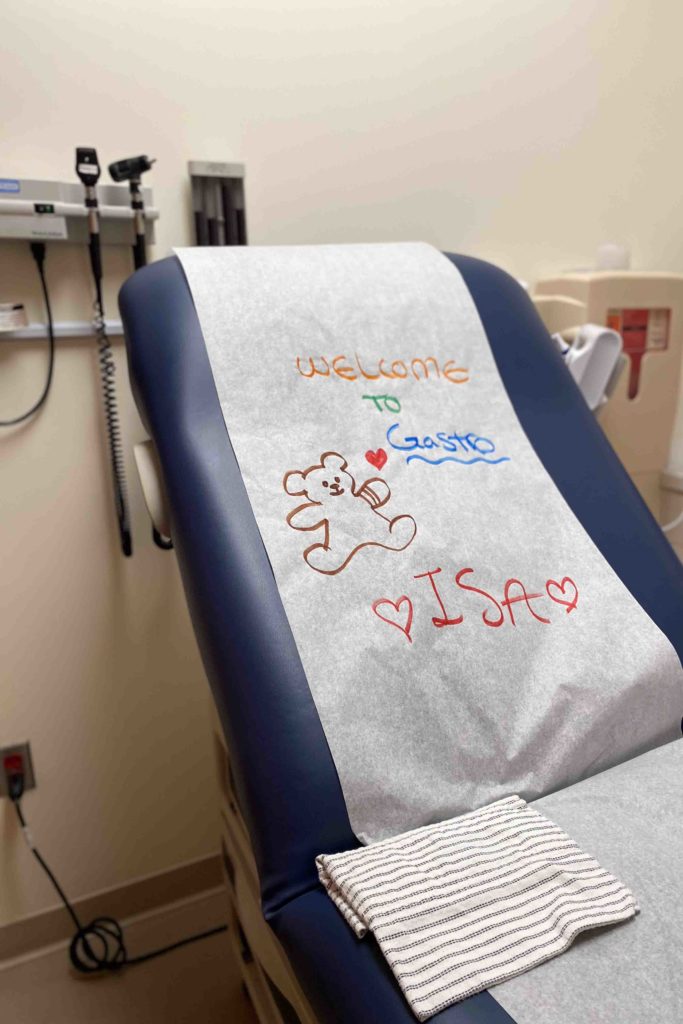
Feeding Therapists
- What: A feeding therapist works with a baby and caregiver to provide feeding support and techniques when there are feeding challenges.
- Why: Feeding difficulties are common in CHD babies, so support is often needed. This may be due to the strain on their heart making feeding extra taxing, or physical sucking and swallowing challenges.
- How: For babies, feeding therapists can assist in breastfeeding techniques, bottle feeding solutions, and guide feeding tube weaning. There are additional support options for toddlers and older children if needed. A speech therapist or occupational therapist may provide feeding therapy services.
We were referred to a feeding therapist due to my daughter’s CHD and vocal cord paresis causing silent aspirations. Since she had several odds stacked against her from the beginning and was on a tube feeding journey, our team suggested feeding support. The therapist helped us every 2 to 4 weeks for almost an entire year.
Dieticians
- What: A Registered Dietician or a nutritionist assists their patients in optimizing their nutrition and diet for their specific health needs.
- Why: Babies with CHD commonly struggle to gain weight, but it’s essential to their development. It’s also important for them to be as strong and healthy as possible going into surgery. A dietician may be involved to help guide the parents to help a baby with CHD gain weight and be in optimal nutritional health.
- How: The dietician should work along with the baby’s cardiologist, caregiver, and if applicable gastroenterologist, to create a nutrition plan that will address the baby’s needs. This could include discussing breastmilk options, formula options, additional calorie support, and more.
We met with multiple dieticians and nutrition teams for my daughter. Growth was always going to be an uphill battle, so we needed extra support in this area.
Otolaryngologist
- What: An otolaryngologist or ENT doctor helps their patients with any issues related to their ears, nose, and throat.
- Why: A warrior may need to see ENT for comorbid conditions due to their CHD, or for reasons completely unrelated. This could include vocal cord paralysis from open heart surgery, hearing concerns, NG/NJ feeding tube issues, or sleep problems.
- How: You should be referred to an ENT if your child’s team thinks it will be helpful to have their specialty involved. They have various tools, scopes, and cameras to get a look inside a child’s ear and nasal canals, and throat. This doctor may diagnose, help manage or treat, or coordinate surgery depending on what problems the patient presents with.
Since my daughter’s vocal cord was paralyzed during her first open heart surgery, and she had an NG tube, we saw ENT to guide us in managing and resolving these issues.
Developmental Support
Due to the limitations or stress of their heart function, or its effects on their body, a CHD warrior baby may have neurodevelopmental challenges or delays.
Your child may have additional developmental-related providers, therapists, and supporting professionals on their CHD medical team. These members can help assist your child with their developmental issues.
Developmental Clinic
- What: Some hospitals have specialty clinics that provide a more in-depth and ongoing comprehensive assessment of a child’s development. These are typically offered to babies at a higher risk of neurodevelopmental challenges. This could be due to critical CHD, extremely preterm birth, or a neonatal illness, for example.
- Why: Babies with CHD are at risk for various developmental delays, so tracking their development and coordinating additional support early can make a positive difference.
- How: Each hospital program may operate a little differently. A team of providers from various specialties (e.g., neonatal, diet, physical therapy, speech therapy) assesses the baby or child every 6 months, 12 months or so. They use various developmentally appropriate tools, toys, and actions and request the child complete various tasks in order to find out where they are. From here, they may refer the child to the regional center or other specialty providers or therapists.
For our home hospital, they run a clinic for high-risk infants that follows them for two to three years. We met with them twice a year for a full assessment, these were extra lengthy appointments, but important in checking in on where my daughter needed additional support.
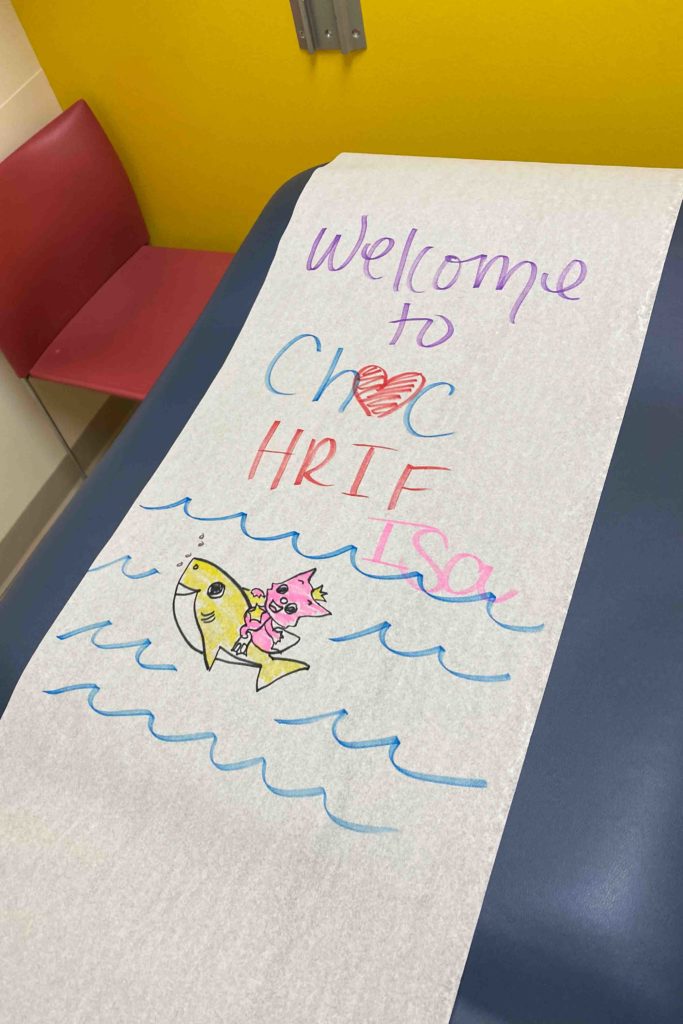
Speech Therapists
- What: A speech therapist is a professional who assists individuals with speech, language, communication issues, and sometimes feeding and swallowing problems.
- Why: Babies with CHD are at risk for developmental delays, including speech delays. Speech therapy can help them learn and strengthen their communication skills.
- How: The hospital, developmental clinic, pediatrician, or another provider may recommend or refer your child to speech therapy. The speech therapist will assess your child, do activities with them, and suggest things to do with them at home. This could include oral feeding practice, sign language, games, reading, and more depending on your child’s age, challenges, and development.
We didn’t see a separate speech therapist for communication. However, my daughter’s feeding therapist was a speech therapist.
Occupational Therapists
- What: An occupational therapist helps people better manage activities and skills necessary for daily life. They may work with children with illnesses, injuries, developmental delays, cognitive challenges, sensory issues, and others.
- Why: Since CHD can cause a host of neurodevelopmental issues and challenges, occupational therapy can be a helpful resource to provide CHD kids support in their daily lives.
- How: Occupational therapy covers a wide array of skill support. If your child needs this, an occupational therapist can assess them and will customize a program or activities to support their specific needs. They can help with sensory processing, fine motor skills, hand-eye coordination, feeding skills, balance, and several other areas.
My daughter worked with occupational therapists while inpatient post-op, and for her developmental clinic check-ins.
Physical Therapists
- What: A physical therapist helps people with their physical movement.
- Why: Because some babies with CHD have long hospital stays, and could have limitations directly or indirectly due to their heart defects, sometimes this causes problems or delays with their body’s movement abilities and strength. For example, a baby with critical CHD may crawl or walk later than a typical healthy baby.
- How: Your baby’s pediatrician or developmental program should be keeping a pulse on their physical abilities and development. They will refer you to a physical therapy program if necessary. The physical therapist will do different movement activities and exercises based on their age, limitations, goals, and development.
My daughter worked with physical therapists while inpatient post-op, and for her developmental clinic check-ins. She was referred for additional PT support, but her need was minor and we didn’t have the capacity to fit it in at that time. So we skipped it, and she caught up on her own shortly thereafter.
Advocate for your child
Your child’s CHD medical team will vary based on their types of congenital heart defects, any other conditions, and the effect these have on their health, development, and growth.
Their core doctors, like pediatricians or cardiologists, are often tuned into how things are going beyond their specific focus. They’re watching out or looking for signs that indicate the child may need further support in another area and should suggest additional testing, assessments, or providers.
Even still, don’t forget you are also a part of your baby’s medical team. Trust your mom gut! Or dad intuition! If something seems off, don’t hesitate to bring it up.
You don’t need to wait for your pediatrician or other doctors to raise a concern. Depending on your insurance, you may be able to go directly to another physician or therapist. Or you can request a referral from your child’s existing team. Furthermore, you can request a second opinion if you want another professional assessment of your child’s condition to compare.
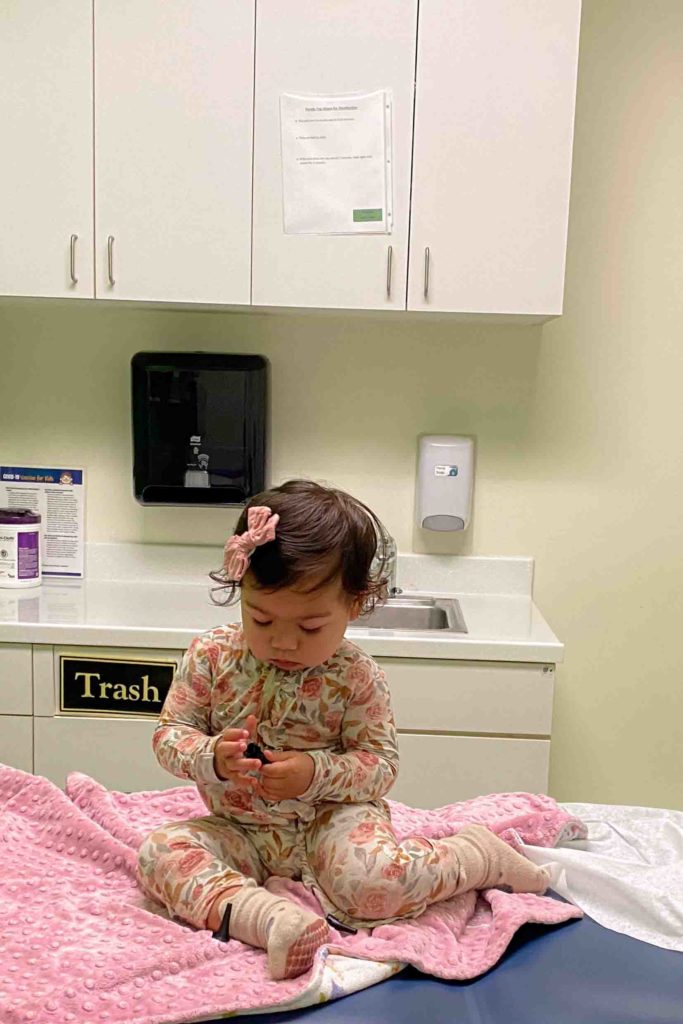
Closing
Congenital Heart Defects can put a lot of strain on a baby’s little body. This might affect their heart, lungs, digestive system, throat, development, and other things directly or indirectly.
Most heart warriors are affected in some capacity beyond their heart, though in what ways and to what degree vary significantly. A strong and supportive team of medical professionals is paramount for a CHD warrior.
A child’s CHD medical team could include a pediatrician, pediatric dentist, pediatric cardiologist, echocardiogram technician, nurses, pulmonologist, gastroenterologist, feeding therapist, dietician, ENT, developmental clinic, speech therapist, occupational therapist, and physical therapist. And certain children may require assistance from additional specialties.
It may feel like a lot of doctors, and it can be, especially when appointments start to stack up. But this will help them better manage their CHD and its associated effects both in the short term and long term.
Still, you know your child best and are part of their team. Don’t be afraid to advocate for your baby! If they have too much going on, talk with their team about whether you can scale back on anything or switch up the schedule to make it more manageable.

